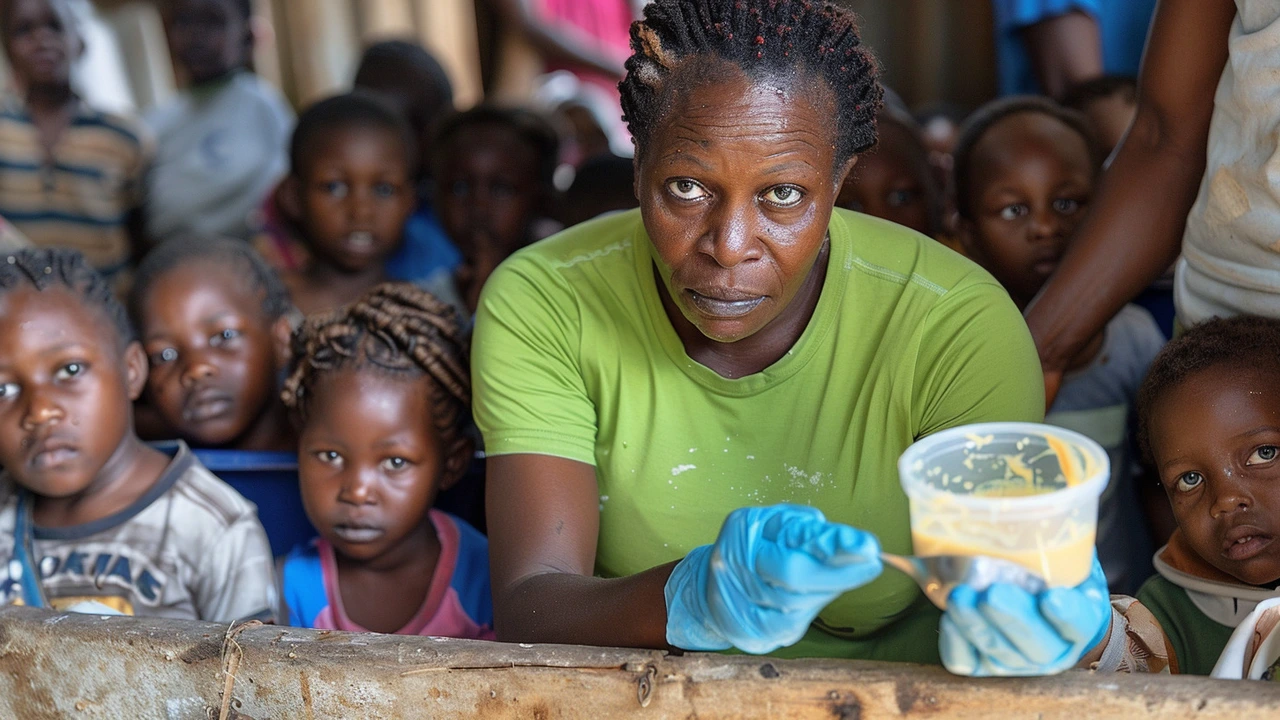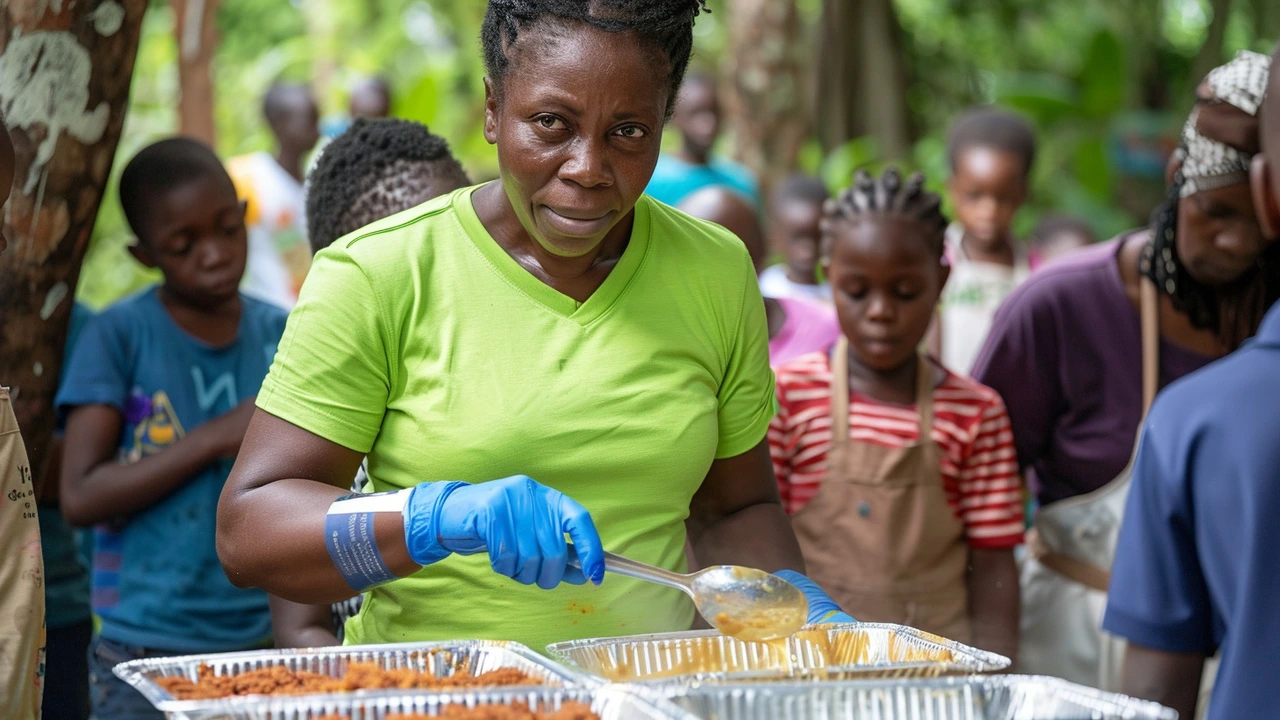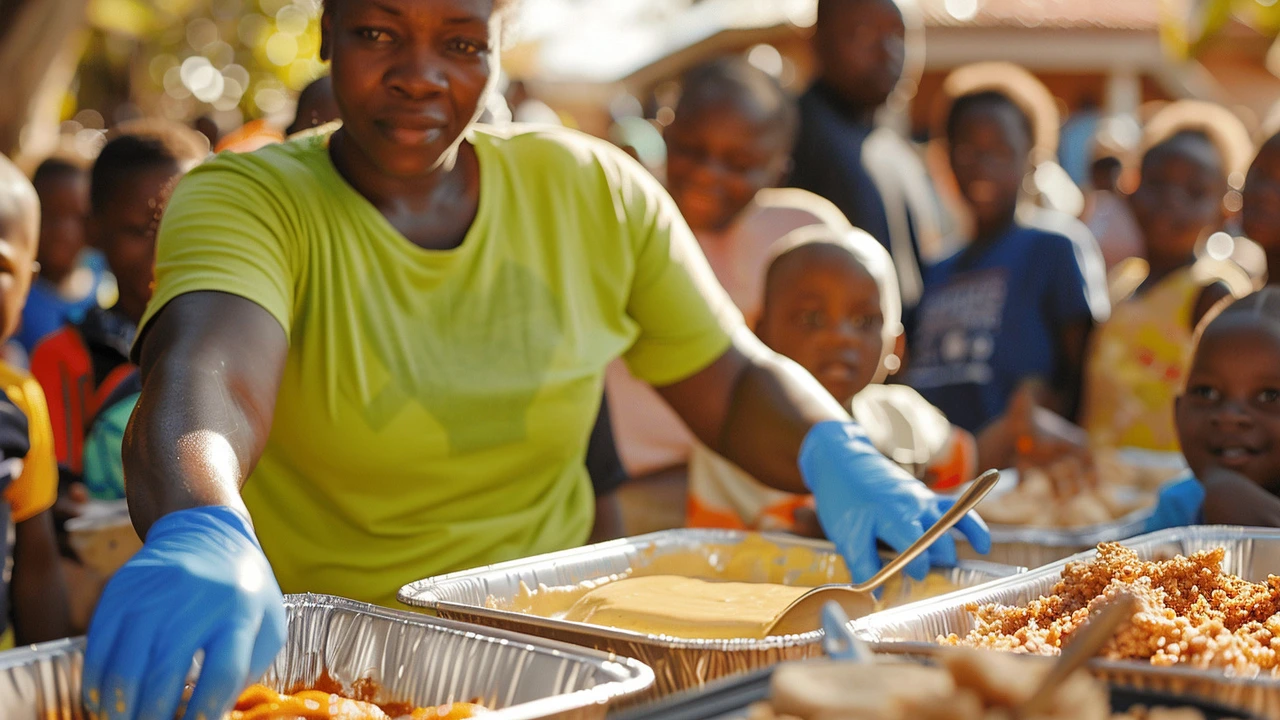The Dire Impact of Gang Violence on Children in Haiti
The ever-growing gang violence in Haiti has reached a critical point, drastically affecting the lives of its most vulnerable citizens—children. According to recent reports from UNICEF, over 300,000 children have been displaced due to the escalating violence since March. This alarming figure accounts for more than half of the nearly 580,000 individuals forced to flee their homes amidst the chaos. The situation took a dramatic turn in late February when a series of coordinated attacks were launched on key government infrastructures. The ensuing turmoil led to the resignation of Prime Minister Ariel Henry in April, further exacerbating the country's instability.
UNICEF's Appeal and Calls for International Aid
Catherine Russell, Executive Director of UNICEF, has been a vocal advocate for immediate action. She highlights the dire and far-reaching impact of this humanitarian crisis, stressing that children are particularly at risk. According to Russell, a secure environment and robust international assistance are pivotal in alleviating their suffering. As gangs exert control over about 80% of Port-au-Prince and major transportation routes, the challenges of providing aid and ensuring safety are immense. The first quarter of the year alone saw over 2,500 casualties, painting a grim picture of the violence's toll on the populace.

Living Conditions and the Impact on Education
The displacement has forced many children and their families into makeshift shelters, including schools that often lack basic sanitation. Such living conditions open the door to various diseases, further endangering the already vulnerable children. The closure of many educational institutions due to the violence has also significantly contributed to a surge in school dropouts. Many children find themselves compelled to join violent gangs as a means of survival, deprived of essential resources like food, healthcare, clean water, and proper sanitation. This harsh reality has exposed countless young lives to exploitation, abuse, and the agonizing experience of family separation.
Kenyan Intervention and International Reactions
Amidst this turmoil, a group of Kenyan individuals has arrived in Haiti with the aim of liberating the nation from the grip of gang control. Their arrival has elicited mixed reactions, drawing parallels to a previous UN peacekeeping mission. This past mission, which faced severe criticism for introducing cholera to Haiti and allegations of misconduct, brings a level of skepticism to current international intervention efforts. Nonetheless, discussions about a new UN-supported mission are underway, with a strong focus on accountability and stringent oversight mechanisms to avoid repeating past mistakes.

Preparing for Natural Disasters Amidst Chaos
As if the humanitarian crisis were not enough, Haiti is also bracing for an intense hurricane season. The season has started earlier than usual, adding another layer of complexity to an already dire situation. A tropical storm watch has been issued along the southern coast as Hurricane Beryl approaches the Caribbean Sea, threatening to bring further turmoil to an already beleaguered population.
Plea for Global Action
The international community faces a critical moment in addressing the multifaceted crisis in Haiti. As the situation continues to deteriorate, the need for comprehensive aid and intervention grows increasingly urgent. UNICEF's call for a secure environment for children and extensive global assistance resonates as a poignant reminder of the dire stakes involved. Without swift and coordinated efforts, the lives of Haiti's most vulnerable—including its children—will continue to hang in the balance.


Vikas Yadav
July 4, 2024 AT 06:48300,000 children displaced... that number doesn't even feel real anymore. It's like we've stopped being shocked because it's too big. But it should be. Every single one of them has a name, a favorite toy, a bedtime story. And now? They're sleeping on concrete floors, listening to gunfire instead of lullabies. We can't keep pretending this is someone else's problem.
Sreeanta Chakraborty
July 5, 2024 AT 19:01International intervention is a colonial relic disguised as charity. Kenya's involvement? A distraction. The real issue is internal corruption and the failure of Haitian institutions. Foreign troops won't fix broken governance-they'll just become targets. The UN's cholera scandal alone should've taught us: sometimes, the cure is worse than the disease.
Vijendra Tripathi
July 7, 2024 AT 14:09man i just saw a video of a kid in port-au-prince holding a stuffed bear made of trash bags... like, what even is this world? i mean, kids are supposed to play with legos and eat ice cream, not dodge bullets and beg for water. i don't know how to fix it but i know we gotta stop looking away. maybe donate to local orgs instead of waiting for governments to act? they're the ones actually on the ground.
ankit singh
July 9, 2024 AT 12:0280% of port-au-prince under gang control. schools closed. no clean water. hurricane season coming. the systems are all broken. aid needs to be direct, not bureaucratic. local leaders must be empowered, not sidelined. international aid must come with zero strings attached. this isn't about politics, it's about survival.
Pratiksha Das
July 11, 2024 AT 02:06why no one talk about how the u.s. and france helped destroy haiti's economy after its revolution? like... the debt they forced them to pay? that's the real root. we made this mess. now we just wanna send in soldiers and feel good about it. #hypocrisy
ajay vishwakarma
July 11, 2024 AT 11:09the fact that children are joining gangs for food isn't a moral failure-it's a systemic one. no child chooses violence when they have options. we need food programs, mobile clinics, and safe schools-immediately. not in six months. not after the next election. now. these kids are not statistics. they're our shared humanity.
devika daftardar
July 12, 2024 AT 20:05imagine growing up hearing gunshots as background noise... like the hum of a fan in your room. that's normal. imagine your school becoming a shelter. imagine your mom crying because she can't find milk. imagine your brother disappearing into the chaos. this isnt just a crisis. its a soul wound. and we're all standing around with bandages made of tweets
fatima almarri
July 13, 2024 AT 06:25the structural violence here is multilayered: economic disenfranchisement, post-colonial dependency, institutional collapse, and now environmental precarity. the humanitarian response must be trauma-informed, community-led, and culturally contextualized-not top-down militarized interventions that replicate colonial paradigms. we need to listen to Haitian civil society, not parachute in with saviors complex.
deepika singh
July 14, 2024 AT 07:16okay but let’s be real-this is the kind of stuff that makes you wanna scream into a pillow and then bake cookies just to feel something human again. these kids deserve glitter, not gravel. they deserve to dance in rain puddles, not run from them. if you can spare $5, send it to @haitianchildrenfund. i did. i cried while typing it. but i did it. we gotta do more than scroll.
amar nath
July 14, 2024 AT 19:00you ever notice how the world treats haiti like a broken phone we keep trying to fix with duct tape? they invented the first black republic. they kicked out napoleon. now? they’re begging for water while we post memes about it. we owe them more than pity-we owe them justice. the debt they paid to france? that’s still haunting them. fix the root, not the symptoms.
Pragya Jain
July 16, 2024 AT 02:21Kenya? Why not India? We have the capacity, the discipline, the history of peacekeeping. Why are we letting Western powers dictate who 'saves' Haiti? Our soldiers are trained, our NGOs are active. This isn't charity-it's global responsibility. And if we don't step up, who will?
Shruthi S
July 16, 2024 AT 11:38my heart is breaking 😭
Neha Jayaraj Jayaraj
July 18, 2024 AT 10:35OMG I JUST SAW A TIKTOK OF A KID IN HAITI HOLDING A PLASTIC BAG WITH WATER AND A STUFFED DOLL-LIKE BRUH THIS IS A MOVIE BUT IT’S REAL?? I CRIED FOR 20 MINUTES AND THEN MY MOM SAID ‘JUST DONATE’ BUT I DID AND NOW I FEEL LIKE A HERO 😭💔 #HaitiCrisis #SaveTheChildren
Disha Thakkar
July 19, 2024 AT 17:01Wow, such a ‘heartfelt’ post. But let’s be honest-this is just performative outrage. The real problem? Haitians don’t have the ‘civilizational maturity’ to govern themselves. No amount of aid will fix that. And don’t get me started on the ‘colonial guilt’ narrative-it’s just a distraction from their own failures. Someone needs to tell them to grow up.